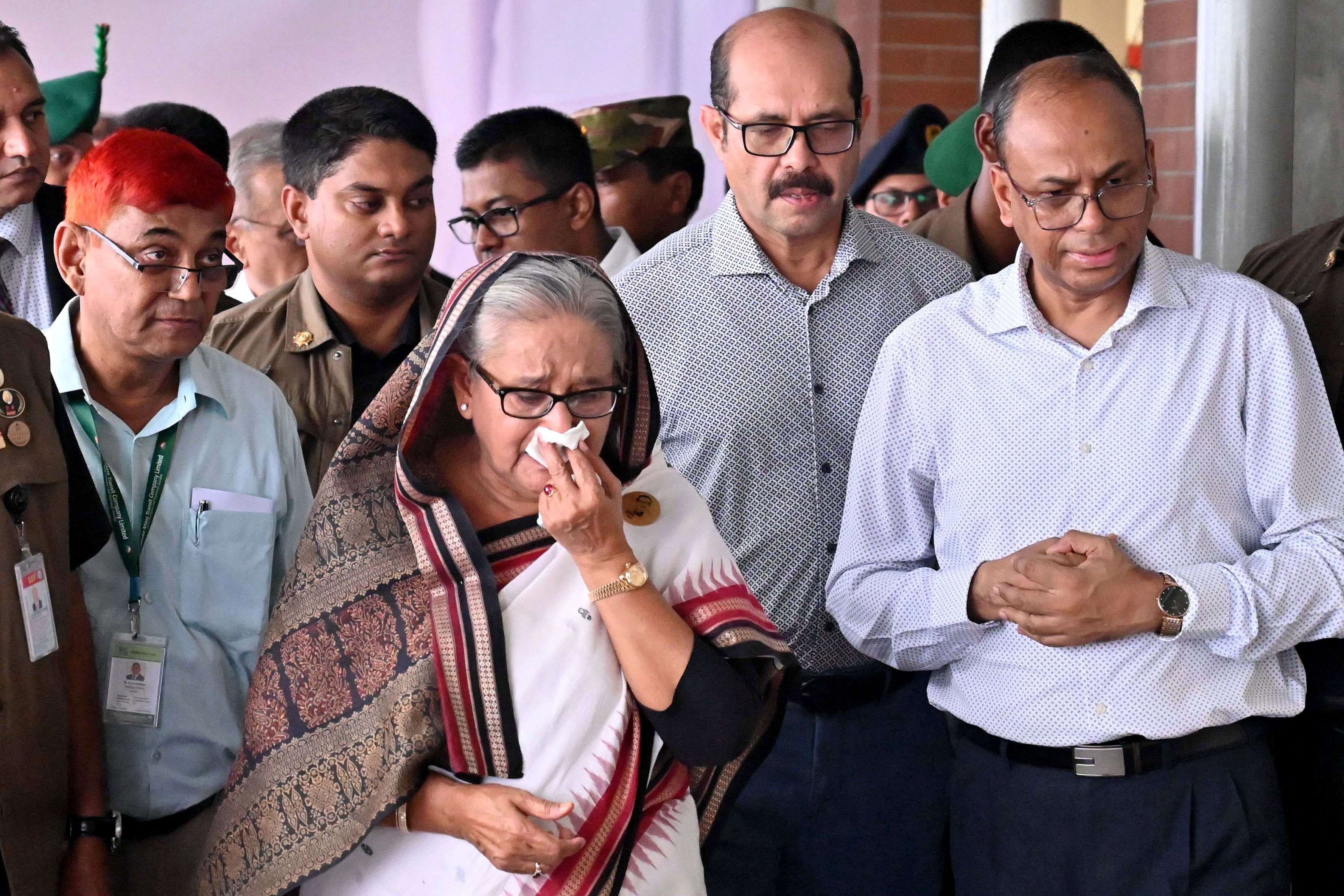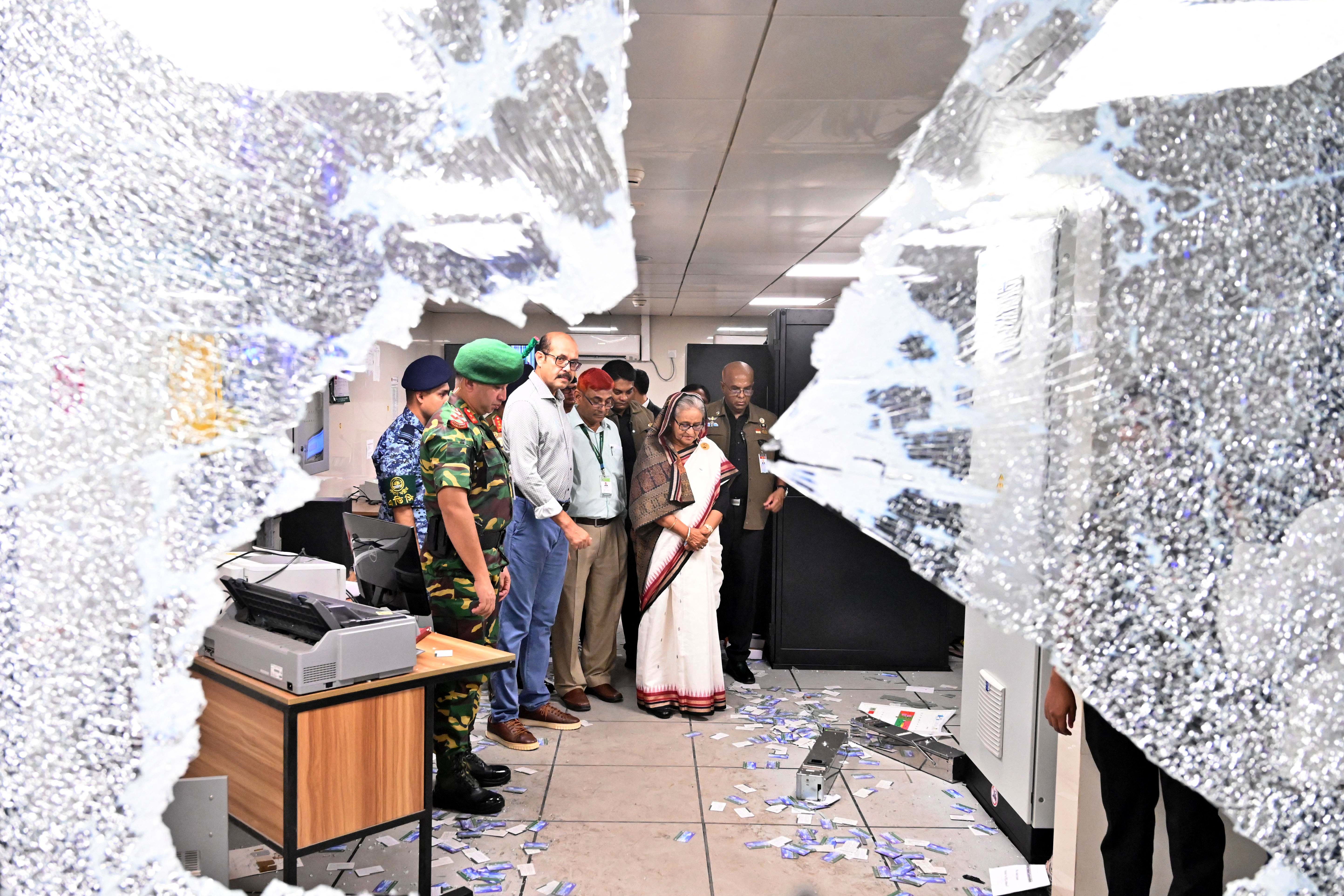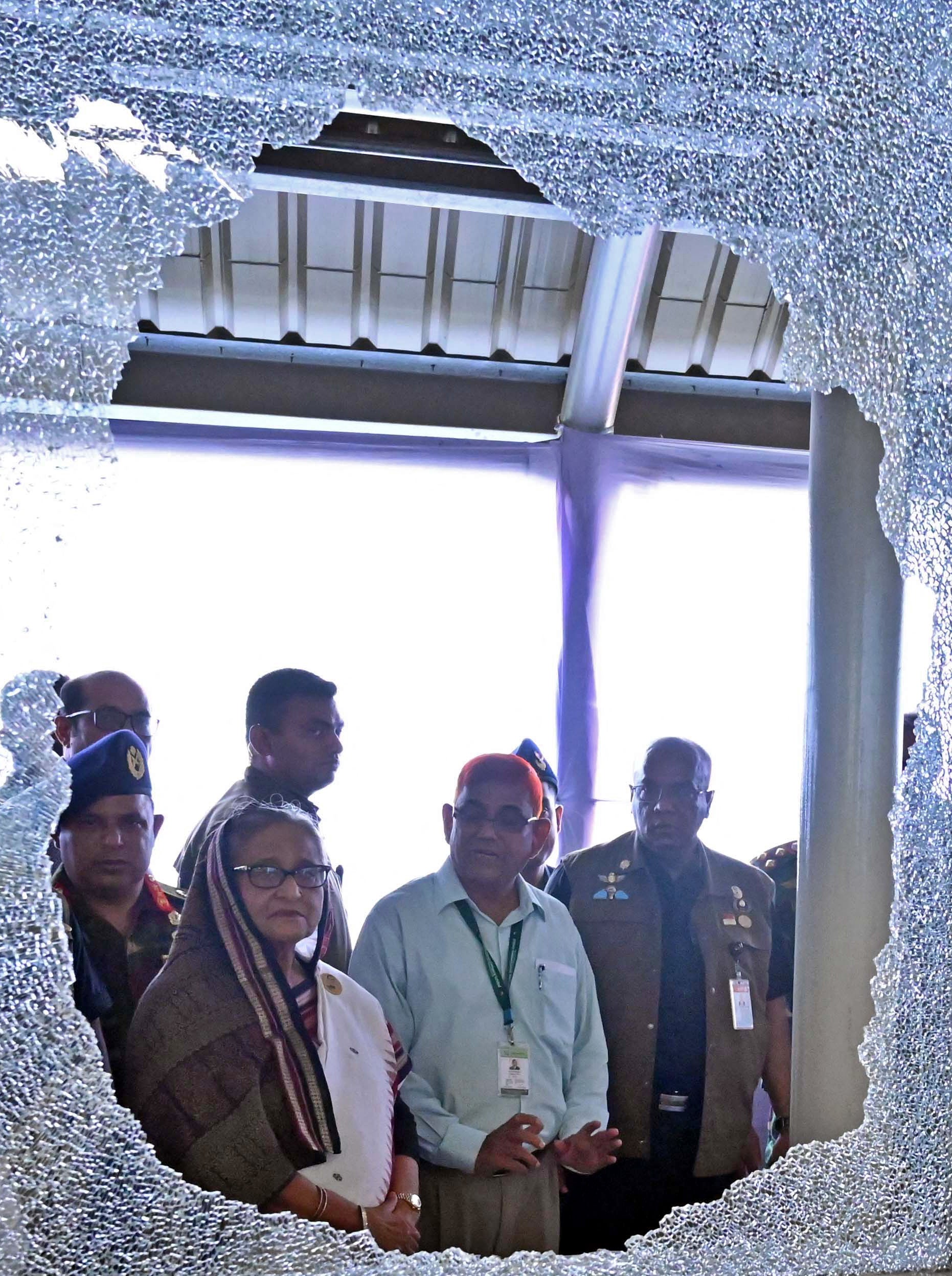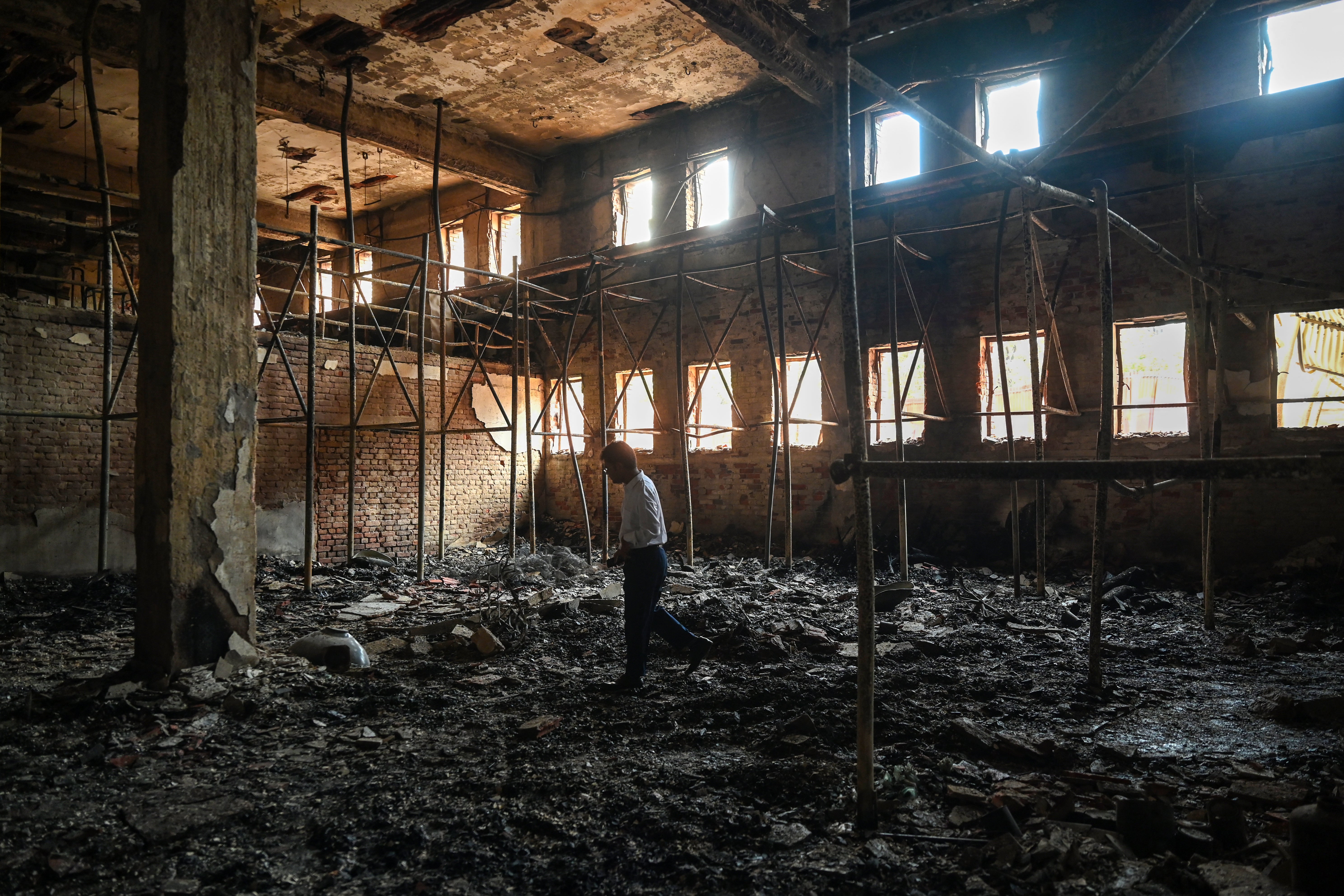Bangladesh PM accused of ‘crocodile tears’ over damaged railway station after 150 killed in violence
Sheikh Hasina was seen wiping away tears in pictures taken during her visit to a metro station in Mirpur

Your support helps us to tell the story
From reproductive rights to climate change to Big Tech, The Independent is on the ground when the story is developing. Whether it's investigating the financials of Elon Musk's pro-Trump PAC or producing our latest documentary, 'The A Word', which shines a light on the American women fighting for reproductive rights, we know how important it is to parse out the facts from the messaging.
At such a critical moment in US history, we need reporters on the ground. Your donation allows us to keep sending journalists to speak to both sides of the story.
The Independent is trusted by Americans across the entire political spectrum. And unlike many other quality news outlets, we choose not to lock Americans out of our reporting and analysis with paywalls. We believe quality journalism should be available to everyone, paid for by those who can afford it.
Your support makes all the difference.Bangladesh’s prime minister Sheikh Hasina is under fire for “shedding crocodile tears” over damage caused to a railway station during a protest against her government that left more than 150 people dead.
Ms Hasina was seen wiping away tears in pictures taken during her visit to a metro station in Mirpur, as social media users lambasted her for what they saw as her apparent lack of empathy for the victims of violence.
Police fired rubber bullets, released teargas, and threw sound-grenades in an effort to disperse tens of thousands of protesters who came out onto the streets to rail against job quotas. The government denied that any live rounds had been fired, but hospital sources said dead and injured people had wounds from bullets and shotgun pellets.
Rights groups and critics accuse Ms Hasina of becoming increasingly autocratic during her 15 years in power. They say her time in office has been marked by mass arrests of political opponents and activists, forced disappearances, and extrajudicial killings. She denies all of these charges.
“What kind of mentality leads them to destroy facilities that make people’s lives easier?” the leader was quoted as saying by the Business Standard during her visit to Mirpur.
“Dhaka city was clogged with traffic. The metro rail offered respite. I cannot accept the destruction of this transport facility made with modern technology,” she said of the station, where ticket vending machines and signalling control stations had been shattered.


The prime minister also toured a damaged section of Bangladesh Television (BTV), as she accused the protesters of trying to spoil “Bangladesh’s image abroad”.
Calling on the public to help the government find those responsible for the vandalism, she said: “Please help us find those who are involved, no matter what nook or cranny of the country they are in, and bring them to justice.”
Bangladeshi news portal BDNews24 quoted her as saying: “I say to citizens and Dhaka residents – those who are responsible for this suffering and destruction, who are today spoiling Bangladesh’s image abroad – I leave to you the responsibility of bringing them to justice.
“The people must be the ones to bring those who create obstacles to the livelihoods of the public to justice, because the only power in the country is the power of the people.”

Alleging that the protesters were spreading disinformation, she said: “Do not allow them to stir unrest by spreading fake propaganda. Everyone must know the truth. They are still making calls from London, trying to ruin the country’s honour and stir up expatriates around the world.”
On Thursday, as she toured the sites that had been damaged during the protest, lamenting the vandalism and the impact on public infrastructure, social media users expressed outrage over her comments.

“We lost 200+ students. Students who are called the future of a nation. Students who were only fighting for their own rights,” wrote a user on X/Twitter. “But PM Sheikh Hasina had the time to go watch and ‘cry’ for a metro rail, not for the people who won’t return ever again.”
“It was the funniest thing I saw yesterday! Lmao she deserves an award for acting this hard and shedding crocodile tears!!!!” wrote another user.
The protests began after students took to the streets demanding an end to a quota system that reserves up to 30 per cent of government jobs for relatives of veterans who fought in Bangladesh’s war of independence against Pakistan in 1971.
The demonstrations began late last month, but tensions escalated last week when students at Dhaka University, the country’s largest university, clashed with police, and a counterprotest inflamed the situation. The students alleged that the protest was peaceful until the student wing of the ruling Awami League party attacked the protesters.
Badiul Alam Majumdar, the secretary of Shushashoner Jonno Nagorik, a Dhaka-based civil society platform for good governance, said the protests were “just the tip of the iceberg” and that the use of force against students will breed further resentment against Ms Hasina’s government.
“People are being deprived of their basic rights, with a significant lack of human rights and justice. They can’t cast their votes freely,” he said. “This widespread frustration and anger among the people is evident in the protests.”
Join our commenting forum
Join thought-provoking conversations, follow other Independent readers and see their replies
Comments